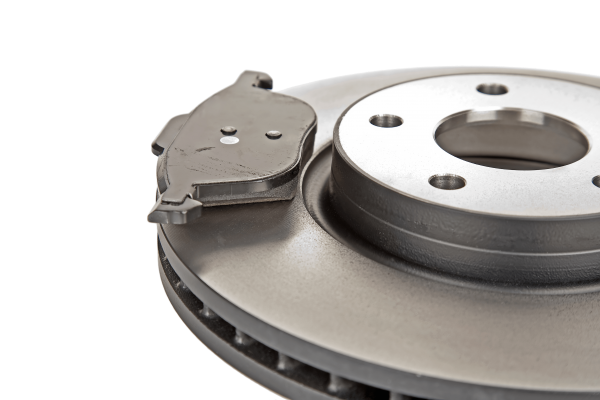
Know Your Brakes
1. How do I select a good brake pad / shoe / disc / drum?
Good brakes are designed to offer the shortest possible stopping distance & longest lifetime of the pad / shoe / disc / drum. At Auto1 we only supply and fit the best brands such as Safeline, Ferodo, ATE, & Allied Nippon. Never simply make a decision based on price – your safety and that of your passengers & other road users depends on your vehicle’s stopping power.
2. When should I change my brake pads?
· Warning light comes on on the dashboard of modern vehicles
· When stopping distance increases
· When pad thickness is below the minimum mark
· When damage or cracks are visible
· Squealing or screeching noises are always a sure indicator – deep metallic grinding and growling are an alarm signal. Metal on metal contact will surely damage other components such as discs and calipers.
· The pad needs to have at least 3mm of friction material present
3. How long do brake pads last?
This depends a lot on your driving habits and conditions, and also on the quality of the brake pads. Most good passenger vehicle brake pads are guaranteed to last 35000km, but will definitely give much longer life unless your vehicle is used exclusively for stop-start city driving.
4. Can ventilated, grooved or drilled discs be skimmed?
Latest technology allows for on-car skimming of all types of discs, however good quality replacement discs are reasonably priced in line with skimming in most cases, and obviously far safer. We recommend that discs be replaced. No amount of ABS and other aids will help you if a disc shatters or cracks and locks a wheel.
5. How do I check my brake discs?
Inspect for flaking rust on the disc surface, score marks, heat cracks, hot spots and if the disc is smooth or has grooves worn into it. A Verner should be used to measure disc thickness. If the disc is worn too thin it could crack or even break apart under severe conditions. Brake discs can normally be skimmed at least once, depending on the thickness and condition of the disc.
6. Aren’t all brake pads the same?
No. Vehicle makes and models have different shapes and sizes, and in many cases contain different friction materials to facilitate specific requirements and performance capabilities.
Troubleshooting
1. Soft brake pedal
If your pedal feels spongy, soft, or needs to be pumped before it works, it is usually due to a leak in the braking system – either a pipe needs to be replaced or there is a problem with the brake master cylinder. Brake fluid levels should be immediately checked, and until the problem is resolved the vehicle should not be driven.
2. Car pulls to one side when braking
Usually this is caused by a brake caliper problem. Rust & corrosion are the usual cause, and the best fix would be to immediately replace the caliper.
3. Why are my brakes squealing?
This is the most common complaint about brakes and can be attributed to one of many reasons such as
· Sticky calipers
· Quality
· Improper fitment
· Wear & tear – pads and / or discs may need replacement
· Improper scoring of the disc
· Dust between pad and disc
· Lack of shims / anti-rattle springs
All brakes make a noise. The noise we hear is a product of the entire braking system, not just the pads or discs, but also structural transfer paths through suspension components, etc. This is why it is important to check the entire system when it comes to brake noise.
Sometimes OEM performance requirements may outweigh noise suppression in the brake pad design process. On the other end of the scale, luxury vehicle brakes are dead quiet due to a trade-off of pad life or fade resistance. These will wear faster.
4. My brakes are making a grinding noise
This is usually caused by the brake pad being totally worn, with no braking material left. This will often cause damage to the discs as well and could result in replacement of both if not seen to immediately.
Screeching, squealing, grinding, rubbing noises – in fact any out of the ordinary noises experienced when braking should be inspected and the problem attended to immediately to avoid unnecessary damage to the braking system and ensure safety. The braking system is the single most safety critical part of your vehicle.
5. My steering wheel and/or brake pedal vibrates when I apply brakes
Usually this is due to the brake disc being warped and should be attended to asap. Driving through water puddles/pools on the road can cause the water to splash onto the hot disc causing it to warp.
6. Why does my braking distance increase after driving for a while?
Brake fade occurs when the brake parts are overheated, resulting in extended stopping distances. The pads and discs no longer create sufficient mutual friction to stop the vehicle at its normal rate of deceleration. The result is a braking system that is inconsistent – it works when cool, and doesn’t work as well when the pads/discs heat up. This dynamic brake fade is usually the result of the fitment of inferior brake pads. Immediately replace these with a good quality brake pad!
“Green fade” can also be experienced after fitting new pads – the pads may need a short while to “bed in” and start functioning properly. A few gentle stops from 30km/h should eliminate this.
